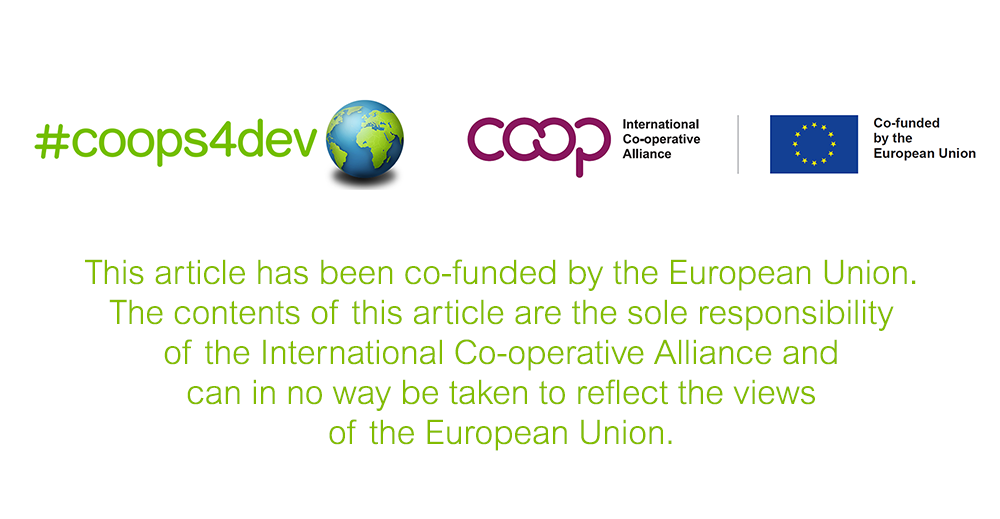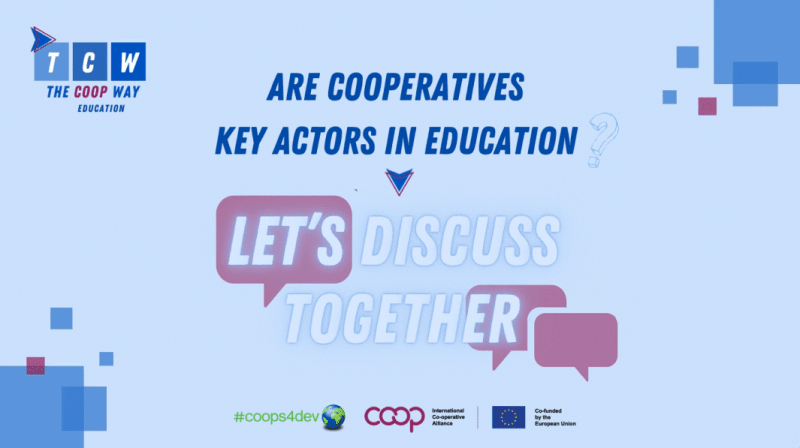
“Are cooperatives key actors in education?” was at the center of the debate during The Coop Way webinar on 19 July. The event gathered key experts in the field of cooperative education to discuss the role of the cooperative movement as an important actor in the promotion of education.
Moderated by Zuraidah Hoffman, ICA World Cooperative Congress Communications Manager, the session was part of a new ICA initiative called “The Cooperative Way” (TCW). TCW consists of a series of webinars that are showcasing the capacity of the cooperative model to adapt to the needs of communities during times of crisis and beyond on multiple levels. And it took place within the framework of the Partnership Agreement between the ICA and the EU, known as #coops4dev.

In the opening speech, ICA Director General Bruno Roelants explained how the Rochdale Principles elaborated in 1844 by the consumer cooperative movement in Britain included a reference to cooperative education. The current cooperative principles adopted in 1995 through the ICA’s Statement on the Cooperative Identity include principle five on education, training and information.The ILO’s Recommendation 193 on the Promotion of Cooperatives also calls for national policies to “promote education and training in cooperative principles and practices at all appropriate levels of the national education and training systems, and in the wider society.”Mr Roelants said cooperative education combines “learning to be, and learning to do“ and emphasised the importance of learning through a cooperative experience.
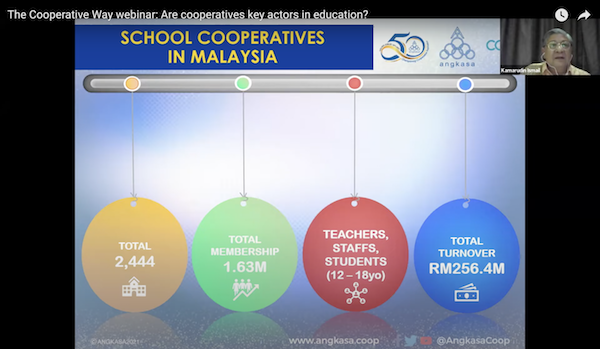
This is already the case in Malaysia, where pupils learn about entrepreneurship through school cooperatives. Dato' Kamarudin Ismail, Deputy President of ANGKASA, the national cooperative federation of Malaysia, talked about the role of the country’s over 2,400 school cooperatives.Ms Ismail, who also serves on ANGKASA's school cooperatives committee and on the ICA’s board of directors, said cooperatives were among the primary actors in education in Malaysia. The school cooperatives are run by pupils between the ages of 12 and 18, who get to put the cooperative principles in action.The local cooperative movement works closely with the Ministry of Education, which in 1989 made it compulsory for all secondary schools to set up cooperatives.
“Being in a school cooperative also encourages cooperation and teamwork among the students,” said Mr Ismail, adding that cooperatives also teach students about democracy.
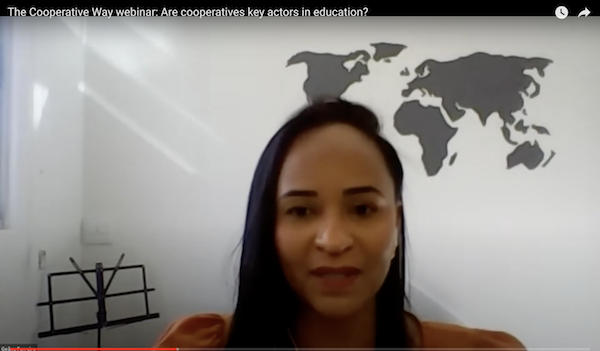
Geâne Ferreira, Manager of Human Development at the National Service of Cooperative Learning (SESCOOP) in Brazil, described some of the cooperative education initiatives led by her organisation. Every year SESCOOP trains 4,000 teachers in the cooperative business model, who then pass the information on to 100,000 students. The organisation also works with 14-24 year-olds, who receive training from employees of cooperatives to help them get ready for their first job. Other initiatives include teaching prospective cooperative employees about leadership, cooperative governance and other business aspects and a partnership with the Brazilian Central Bank, through which members and employees of cooperatives receive financial education.“We believe that the cooperatives are the key actors in education. They have a big responsibility to contribute for a better society and education is the way to achieve it,” she said.

Sboniso Madlopha, Executive Director at Junior Achievement Eswatini, runs a financial literacy programme centred on cooperatives. The students learn about cooperative values and principles and cooperative management, before getting to run financial cooperatives themselves. “So they will have their own treasurer, bank account, constitution, and programme, and that is how they learn hands-on how to manage a cooperative,” said Mr Madlopha. The students are also connected to an existing financial cooperative which can support them throughout the process, should they need that. In six months, they were able to save over US$10,000. “I believe that cooperatives are an enabler for entrepreneurship. Students will have resources to execute ideas, they will use the power of coming together to work on an idea and see it to fruition, and they will have a financial literacy acumen that will help them survive in life post school,” added Mr Madlopha.
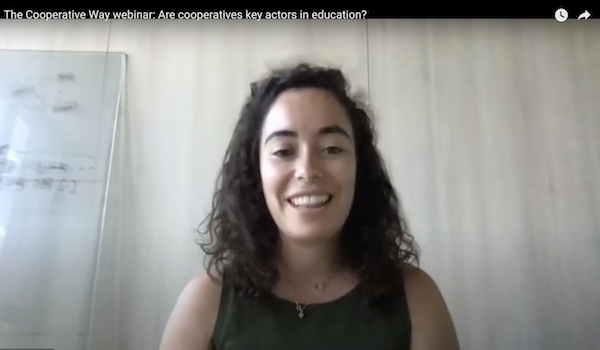
A similar approach was adopted by Tazebaez cooperative in the Basque Country, Spain, through the Mondragon Team Academy project. Co-founder Ana Aguirre talked about the Mondragon Team Academy programme, run by Tazebaez in partnership with the Mondragon University. The programme provides a course on cooperative entrepreneurship, which enables students to learn about cooperatives by creating their own cooperative ventures. “When you really learn is when you do. And these young people learn about cooperatives by creating cooperatives. They can decide to set up a cooperative after they graduate, or not, but at least they will have the knowledge of whether they like the model for themselves or not,” she said. “We need to go beyond our comfort zone as cooperative members and start talking about cooperatives with those people that do not naturally gravitate towards the cooperative orientation,” she added.
During the webinar’s questions and answers session, participants and speakers discussed ways to make people interested in cooperative education, such as featuring cooperatives in the curricula of business schools, offering internships and apprenticeships, and creating partnerships. They also explored how to make the cooperative model more attractive by disseminating successful and transformative cooperative stories and showing how the model can be a real alternative to conventional businesses.
The full webinar is available here.
-----
The ICA-EU Partnership on international development (also known as #coops4dev) was signed in 2016 between the International Cooperative Alliance and the European Commission to strengthen the cooperative movement as key actor in international development.
Read more about #coops4dev on our website.
